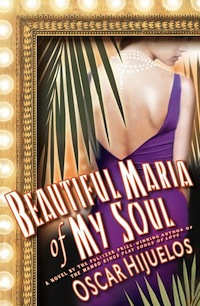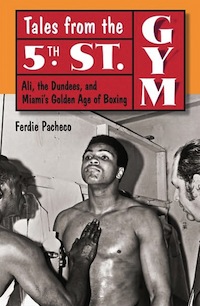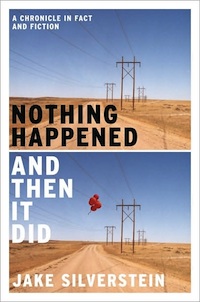A Listing Ship

Integrating the bulletins from the real world (for lack of a better phrase) with the books one chooses to read, and the movies and videos one views, is no small task, especially for dedicated, inveterate readers. As a youth I recall being able to compartmentalize the characters and storylines, or the crisp lines of dialogue, or even some toss-away bon mots in the stuff I read. Now, not so much.
And it is not that I can’t tell the difference between what we ordinarily call reality—what “really” happened or was supposed to have happened—and the tales made up to amuse or baffle or inform, or whatever they do that transfixes us. At least, I make that claim for now. No, the issue is how much weight to assign, how much focus or attention must be paid to the bits and pieces that leap out from the tidal wave of shit that constitutes info-world.
A big story this week was the Michael Hastings report from the world of recently retired General Stanley McChrystal (before he was fired and retired)—which, given the mortal stakes and consequences, is at it should be. There are, of course, secondary and tertiary stories: the failure of the mainstream press, and the chorus of old women ululating around Hastings’s accomplishments and reputation. So be it.
I was off somewhere else—Cuba to be exact. Not the Cuba of the so-called post-Soviet “Special Period,” but the one of sexy Latin lovers, back when Cuba was America’s brothel and a little thug, Fulgencio Batista, ruled with the U.S.A. and United Fruit’s blessing. It was the time of the rise and triumph of Fidel (Castro) and Havana was a mecca for all manner of aspirations of kids from the countryside (Oriente)—in this case Maria Garcia and Nestor Castillo.
Two decades have passed since American-born son of Cuban immigrants Oscar Hijuelos published his most well-known novel, Pulitzer prize-winning The Mambo Kings Play Songs of Love. And perhaps like love-struck Mambo King Nestor Castillo, Hijuelos has not been able to get Maria Garcia y Cifuentes out of his mind—thus his eighth novel, Beautiful Maria of My Soul (Hyperion), tells part of the Mambo Kings’ story from the point of view of the woman for whom the Mambo Kings classic “Beautiful Maria of My Soul” was written.
Hijuelos still tells this story as a bittersweet melancholy tale, as songs of love tend to be:
And Maria? Oh she still ached over her memories of that musico from Havana—and for many other things. It was as if her heart would never allow her mind to forget. But as Nestor Castillo himself, may God preserve his soul, might have put it, even those delicious pains begin to slowly fade. For in the course of Maria’s ordinary days so unnoticed by the world, she and Luis became as close as any sacrosanct couple, fornicating occasionally, and, in the wake of such intimacy, mostly listening to each other’s verses, which as it turned out were nothing more than songs of love.
* * *
The bright lads at ’90s zeitgeist Spy Magazine were particularly keen on sniffing out the incessant logrolling rife in the media world, in addition to labeling Donald Trump eternally “a short-fingered vulgarian.” Years later, this has made me very conscious of offering kind words, kudos, and laudations to my fellow Grub Street practitioners. But throwing all caution to the wind, I want to commend Carolyn Kellogg’s fastidious response to another one of those “fiction is dead’ gravestone rubbings:
piece
This obituary, by the way, is another by-product of the New Yorker’s “20 Under 40” list, which uses that list as an argument that fiction has expired. Too, too silly.
* * *
One of my favorite books of the recent term was Quotidiana, a collection of essays by Patrick Madden. Madden was kind enough to let me know of a new quarterly journal, The Pedestrian, dedicated to the personal essay.
Reading a personal essay is like enjoying a comfortable conversation with a thoughtful friend—on a porch swing, perhaps, with a summer breeze and ice-clinked glasses of lemonade, or on an evening stroll in crisp autumn air, crunching multicolored leaves under foot. Words move at a leisurely pace, in familiar language, often playful, some times poking fun at one self, spoken candidly but not carelessly.
Have a look-see.
* * *
I recently wrote about Gretel Ehrlich and quoted her eloquent (forthcoming in Sojourner) essay on the British Petroleum debacle. Naomi Klein adds her voice to the din:
The most positive possible outcome of this disaster would be not only an acceleration of renewable energy sources like wind, but a full embrace of the precautionary principle in science. The mirror opposite of Hayward’s “If you knew you could not fail” credo, the precautionary principle holds that “when an activity raises threats of harm to the environment or human health” we tread carefully, as if failure were possible, even likely. Perhaps we can even get Hayward a new desk plaque to contemplate as he signs compensation cheques. “You act like you know, but you don’t know.”
Though, leave it to Joe Bageant for a poignant observation about John Sixpack’s view of the Gulf disaster:
Only trolls stunted by generations of inbred American-style capitalism could do such a thing: reduce a massive ocean dead zone to the cost of a shrimp cocktail or a car payment.
* * *

Keeping in mind David Remnick’s observation about who were valuable sources in his writing of his Muhammed Ali biography—“Always I find the best sources are the sources on the second level—not necessarily principals. Not necessarily Ali himself, but the cornerman, who knows everything and maybe doesn’t give an interview every five minutes.”
Now Ferdie Pacheco, known as the Fight Doctor, and who was a longtime Ali cornerman and physician, writes about Ali and other boxing noteworthies in his Tales From the 5th Street Gym (University Press of Florida).
Robert Cassidy effuses:
Ferdie Pacheco takes you back to a time and place that no longer exist in boxing. On these pages, you are standing alongside the great characters of the sport, inside the wonderfully eclectic 5th Street Gym. You can feel the rhythm of the gym, smell the sweat, and hear the pounding of the heavy bags. What a ride.
* * *

Tom Bissell, no stranger to the unusual, did give me pause to wonder, noting in his review of Jake Silverstein’s Nothing Happened and Then It Did (W.W. Norton), “[O]ne of the weirdest books I have ever read… [Silverstein’s] adventures, real or fictional, are at their worst highly amusing and at their best marvels of droll virtuosity…[A] greatly entertaining and extremely funny book.”
Bissell makes some other pertinent observations, including “Jake Silverstein…[is] on this reviewer’s short list of the best young magazine writers in the country.”
Thus, Nothing Happened, a slender tome and Silverstein’s premiere opus, a hybrid of memoir, long fiction, and history, landed within my gaze. Reportedly, Silverstein, who has a day job at the inestimable Texas Monthly, moved to west Texas some 10 years ago, “where there was nothing happening so that when something did happen there would be no one but me to write about it.” The result is an off-handed, but no less deep for it, rumination on journalism and the primal urge from which it springs forth—storytelling.
Antonya Nelson, novelist and highly regarded storyteller her own self, concisely offers, “The great accomplishment is that the reader, in the end, does not care what is fact, what is fiction, because she has happily arrived at that much more elusive grail: truth.”
* * *
The recent New Yorker fiction issue, which produced yet another list of authors (with a criterion of eligibility which made me laugh), created a requisite stir among many people who pay attention to these lists—a boon to literary journalists stalled for an idea for their next column. Or having a terminal case of lack of imagination.
Dan Wickett of Dzanc Books had offered up protest at the time of the publication of the Latest-List-To-Quibble-About that coalesced into another (counter?) list, the spirit of which is promulgated with this credo:
The New YorkerNew Yorker
And wouldn’t you know it, Lorna Bradbury, literary critic for British newspaper The Telegraph (it was the British who created this dumb list thing, wasn’t it?) countered the New Yorker’s American writers list with her own British iteration, while of course rehearsing obligatory locutions about the vulgarity of lists.
If Bradbury gives us an accurate view Paris Review editor Lorin Stein’s views:
He raises an important point about the ability of any list to characterize what is happening in a country at any given moment. He argues that the idea that a group of 20 writers could hold the key to their generation is a bit of a stretch. These lists, especially of younger writers, mean less and less, as they either celebrate writers who are already familiar or else set out to discover new ones who have been overlooked by the reading public.
That ought to be another nail in the coffin of these media contrivances. We’ll see.
And finally (for now), Sam Tanenhaus of the New York TimesBook Review (who reportedly doesn’t even like fiction) weighed in with “How Old Can a ‘Young Writer’ Be?”, another threadbare topic already exhausted beyond interest, which of course is occasioned by the ur premise of the Young Writers Lists, that writers do their best work in their mature youth, and so on and so forth. It is generous of Tanenhaus to acknowledge that Joseph Conrad, Virginia Woolf, Norman Rush, Henry James, Philip Roth, and Don Delillo were all productive in their later lives. And laughable to think the list is that short (or even, short).
On the other hand I suppose someone has to bring these notions forth from time to time—what would I be doing otherwise?
